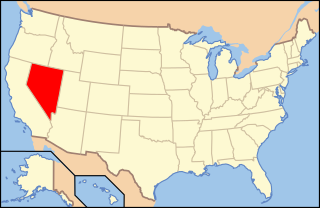
Transgender rights in Canada, including procedures for changing legal gender and protections from discrimination, vary among provinces and territories, due to Canada's nature as a federal state. According to the 2021 Canadian census, 59,460 Canadians identify as transgender.

Canadian lesbian, gay, bisexual, and transgender (LGBT) rights are some of the most extensive in the world. Same-sex sexual activity was made lawful in Canada on June 27, 1969, when the Criminal Law Amendment Act, 1968–69 was brought into force upon royal assent. In a landmark decision in 1995, Egan v Canada, the Supreme Court of Canada held that sexual orientation is constitutionally protected under the equality clause of the Canadian Charter of Rights and Freedoms. In 2005, Canada was the fourth country in the world, and the first in the Americas, to legalize same-sex marriage nationwide.

The rights of lesbian, gay, bisexual, and transgender (LGBT) people in the United Kingdom of Great Britain and Northern Ireland have varied over time. Today, LGB rights are considered to be advanced by international standards. However, the country has developed an increasingly negative reputation regarding the status of transgender rights.

Lesbian, gay, bisexual, and transgender (LGBT) rights in New Zealand are some of the most extensive in the world. The protection of LGBT rights is advanced, relative to other countries in Oceania, and among the most liberal in the world, with the country being the first in the region and thirteenth in the world to enact same-sex marriage.

The Census Act 1920 is an Act of the Parliament of the United Kingdom. Providing for a census for Great Britain, on a date to be fixed by Order in Council, it remains the primary legislation for the provision of the UK census in England, Scotland, and Wales. A minimum of five years is required between censuses.

The Census (Amendment) Act 2000 and Census (Amendment) (Scotland) Act 2000 are acts of the Parliaments of the United Kingdom and Scotland, respectively. They introduced a question on the religion of respondents to the censuses of Great Britain.

Lesbian, gay, bisexual and transgender (LGBT) rights have evolved significantly in the past decades in the British Overseas Territory of Gibraltar. Same-sex sexual activity has been legal since 1993 and the age of consent was equalised to 16 in 2012. The Supreme Court of Gibraltar ruled in April 2013 that same-sex couples have the right to adopt. Civil partnerships have been available to both same-sex and opposite-sex couples since March 2014, and in October 2016, Gibraltar voted to legalise same-sex marriage with the Civil Marriage Amendment Act 2016 passing unanimously in Parliament. The law received royal assent on 1 November and took effect on 15 December 2016.

Lesbian, gay, bisexual, and transgender (LGBT) rights in Nepal have evolved significantly during the 21st century. In 2007 Nepal repealed the laws against gay sex and introduced several laws which explicitly protected "gender and sexual minorities". The Nepalese Constitution now recognizes LGBT rights as fundamental rights. On 28 June 2023, a single judge bench of Justice Til Prasad Shrestha issued a historic order directing the government to make necessary arrangements to "temporarily register" the marriages of "non-traditional couples and sexual minorities". The government has not responded yet. If Nepal fully legalises same-sex marriage, it will become the first least developed country to legalize same-sex marriage. Nepal has not yet passed a national same-sex marriage law.

Lesbian, gay, bisexual, transgender (LGBT) rights in Kosovo have improved in recent years, most notably with the adoption of the new Constitution, banning discrimination based on sexual orientation. Kosovo remains one of the few Muslim-majority countries where LGBT pride parades are held annually.

Lesbian, gay, bisexual, transgender (LGBT) rights in Scotland are generally in line with the rest of the United Kingdom, which have evolved extensively over time and are now regarded as some of the most progressive in Europe. In both 2015 and 2016, Scotland was recognised as the "best country in Europe for LGBTI legal equality".

Lesbian, gay, bisexual, and transgender (LGBT) persons in the Seychelles face legal challenges not experienced by non-LGBT residents. Same-sex sexual activity has been legal since 2016, and employment discrimination on the basis of sexual orientation is banned in the Seychelles, making it one of the few African countries to have such protections for LGBT people. However, LGBT people may nonetheless face stigmatization among the broader population.

Lesbian, gay, bisexual, and transgender (LGBT) persons in the U.S. state of Nevada enjoy the same rights as non-LGBT Nevadans. Same-sex marriage has been legal since October 8, 2014, due to the federal Ninth Circuit Court of Appeals ruling in Sevcik v. Sandoval. Same-sex couples may also enter a domestic partnership status that provides many of the same rights and responsibilities as marriage. However, domestic partners lack the same rights to medical coverage as their married counterparts and their parental rights are not as well defined. Same-sex couples are also allowed to adopt, and state law prohibits unfair discrimination on the basis of sexual orientation and gender identity, among other categories, in employment, housing and public accommodations. In addition, conversion therapy on minors is outlawed in the state.

Lesbian, gay, bisexual, and transgender (LGBT) persons in the Australian state of New South Wales have most of the same rights and responsibilities as heterosexual cisgender people.

Lesbian, gay, bisexual, and transgender (LGBT) persons in North Macedonia face legal and social challenges not experienced by non-LGBT residents. Both male and female same-sex sexual activity have been legal in North Macedonia since 1996, but same-sex couples and households headed by same-sex couples are not eligible for the same legal protections available to opposite-sex married couples.

The 2021 United Kingdom census is the 23rd official census of the United Kingdom. Beginning in 1801, they have been recorded every 10 years. The decadal 2021 censuses of England, Wales, and Northern Ireland took place on 21 March 2021, and the census of Scotland took place 365 days later on 20 March 2022. The censuses were administered by the Office for National Statistics (ONS) in England and Wales, by the Northern Ireland Statistics and Research Agency (NISRA) in Northern Ireland, and by the National Records of Scotland in Scotland. These were the first British censuses for which most of the data was gathered online. Two of them went ahead despite the COVID-19 pandemic, in part because the information obtained would assist government and public understanding of the pandemic's impact. The census-taking in Scotland was postponed, and took place in 2022 because of the pandemic.

The Equality Act is a bill in the United States Congress, that, if passed, would amend the Civil Rights Act of 1964 to prohibit discrimination on the basis of sex, sexual orientation and gender identity in employment, housing, public accommodations, education, federally funded programs, credit, and jury service. The Supreme Court's June 2020 ruling in Bostock v. Clayton County protects gay and transgender people in matters of employment, but not in other respects. The Bostock ruling also covered the Altitude Express and Harris Funeral Homes cases.
Transgender rights in Australia have legal protection under federal and state/territory laws, but the requirements for gender recognition vary depending on the jurisdiction. For example, birth certificates, recognised details certificates, and driver licences are regulated by the states and territories, while Medicare and passports are matters for the Commonwealth.
This is a list of notable events in the history of LGBT rights that took place in the year 2017.

The Census Act 2019 is an act of the Parliament of the United Kingdom. The act removed penalties for people not responding to new census questions on sexual orientation, gender identity.
The Census Act 2019 may refer to:

















